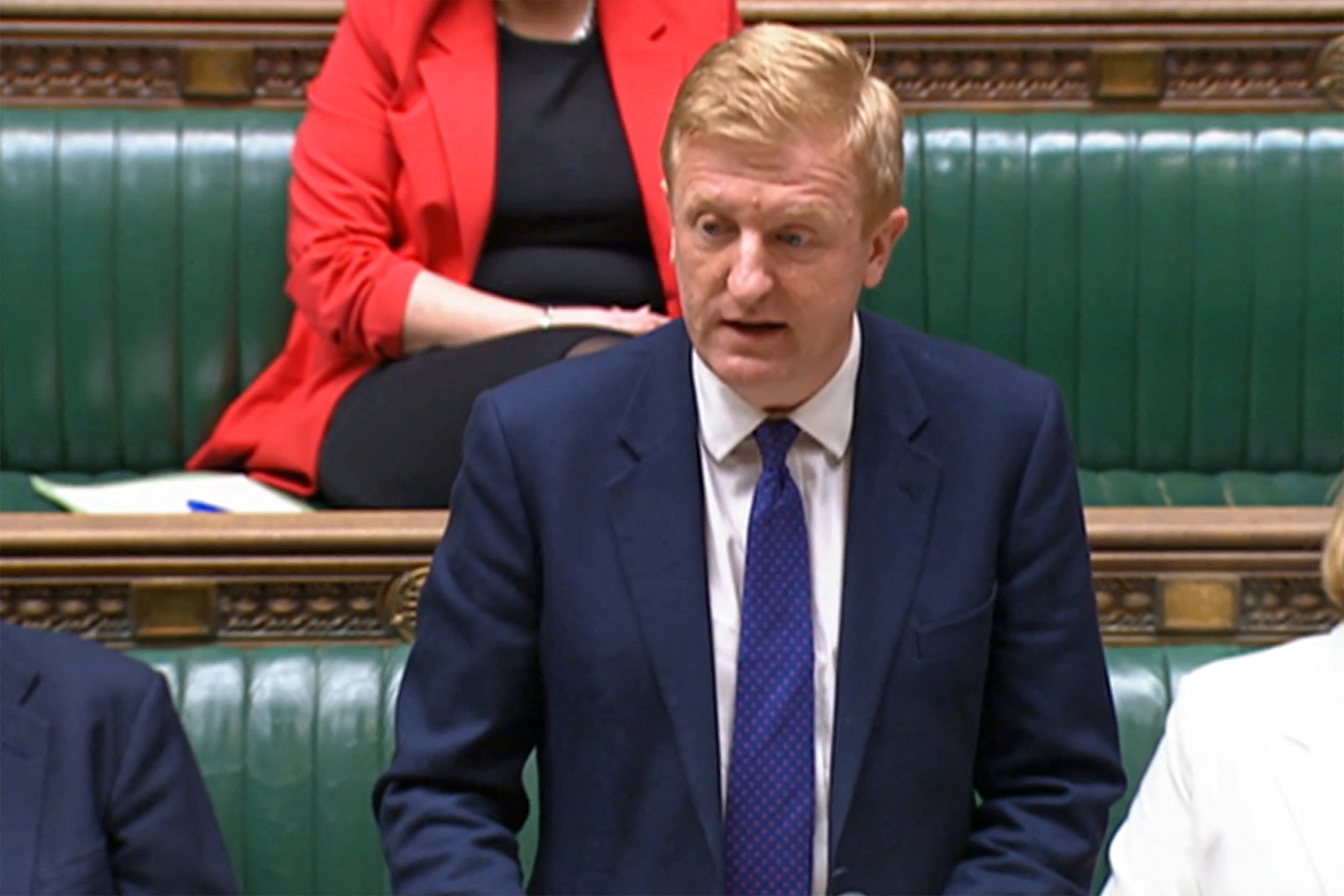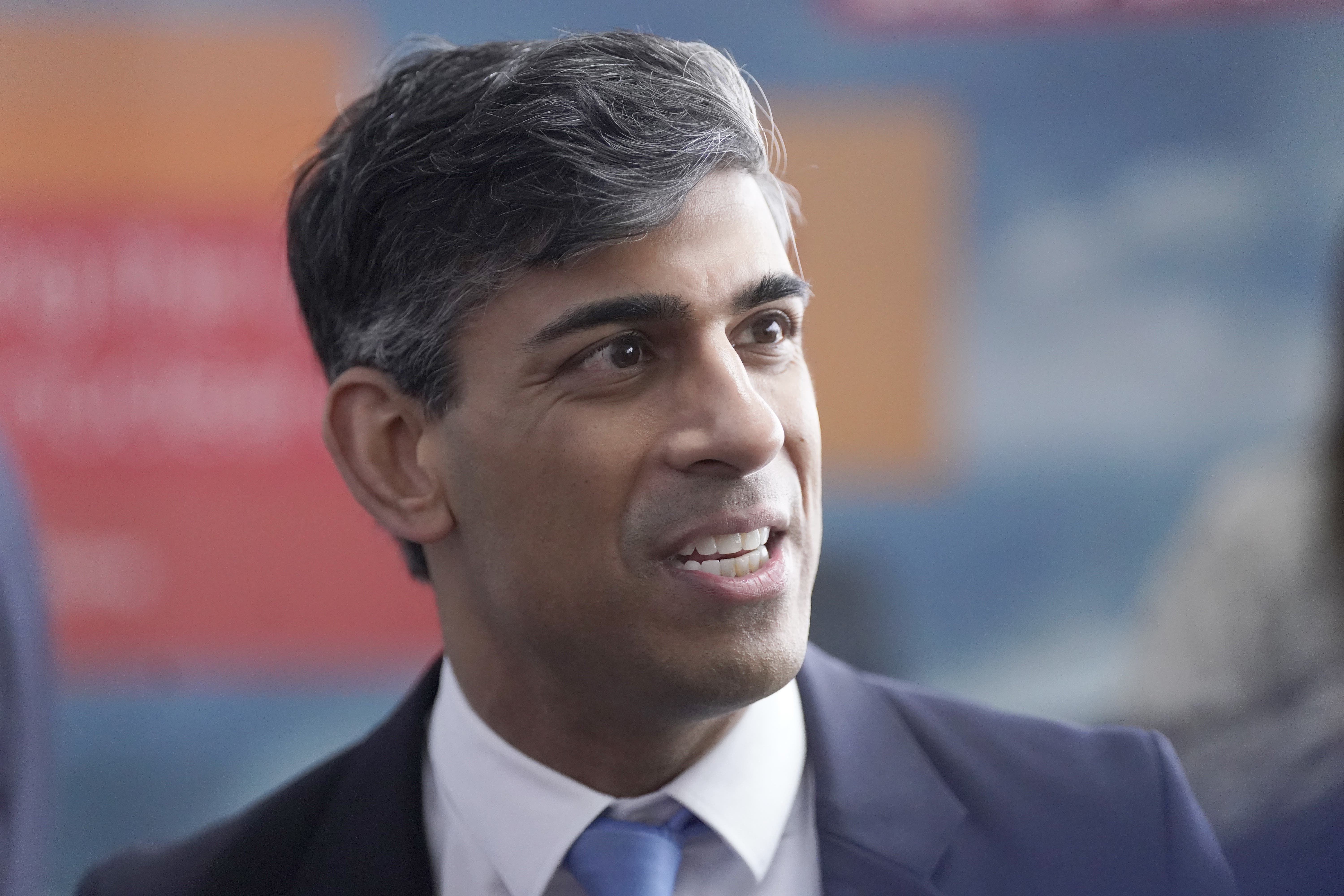UK retaliates with sanctions against China over cyberattack on MPs and voters
Sanctions announced against two Chinese state actors and firm linked to regime over ‘malicious’ hacks into a ‘treasure trove’ of personal data of parliamentarians and 40 million voters – as MPs call for tougher action
The UK has slapped sanctions on China after it accused state-backed hackers of carrying out two “malicious” cyberattacks, including one on Britain’s election watchdog,
Deputy prime minister Oliver Dowden said the “malign” attacks on MPs and the Electoral Commission – during which hackers allegedly accessed the personal details of about 40 million voters – marked a “clear and persistent pattern of behaviour that signals hostile intent from China”.
The Foreign Office will now summon the Chinese ambassador to explain what happened, with Mr Dowden insisting the UK would take “swift and robust actions” against Beijing for any behaviour which targets the UK’s democratic institutions and politicians.
But he stopped short of labelling the country a threat, admitting the UK will “continue to engage” with China on issues such as trade and climate change “when it’s in our national interest”. Former Cabinet Office minister Sir David Lidington was leading a delegation of MPs on a visit to China over the past week to talk with the Communist Party about relations between the two countries.
Mr Dowden’s statement came after GCHQ identified a Chinese state-affiliated hacking group as the culprit of the cyberattack, which took place between 2021 and 2022 and gave the attackers personal details of those registered to vote between 2014 and 2022.

MPs calling for Rishi Sunak to use the statement as a “watershed moment” hit out at Mr Dowden’s response, with China hawk and former Conservative leader Sir Iain Duncan Smith describing it as “like an elephant giving birth to a mouse”.
In a day of international political posturing:
- Sir Iain compared Mr Sunak’s stance on China to Britain’s appeasement of Hitler in the 1930s
- Former immigration minister Robert Jenrick said the government’s response was feeble and would only “embolden China”
- Ex-home secretary Suella Braverman called for China to be listed on a register of threats to Britain’s national security
- Foreign secretary Lord Cameron briefed backbench Conservative MPs on the threat posed by China
- Labour’s Pat McFadden backed the government but demanded assurances that the general election would be safe from hackers
Critising Britain’s response to China, Mr Jenrick, tipped as a future Tory leadership contender, said the government “clearly is not holding China to account for their attack on our democracy”.
Ms Braverman, also expected to contest a future leadership election, hit out at the danger that China holds, telling MPs: “It is abundantly clear that China is a hostile state and poses an unprecedented threat to our national security.”
As a row broke out over the government’s approach to Beijing, Sir Iain – who has repeatedly called for Mr Sunak to designate China officially a “threat” as opposed to an “epoch-defining systemic challenge” – even compared the government’s current policy to that of Britain’s pre-Second World War administration.
”We need to be much stronger and tougher. The lesson we learned from the 1930s is that appeasement never works,” he said at a press conference in Westminster over the issue.
“Today’s announcement should mark a watershed moment where the UK takes a stand for values of human rights and the international rules-based system on which we all depend.”

Former Labour minister Sir Chris Bryant said he found Mr Dowden “utterly unconvincing”, telling the Commons: “If he thinks this is the sum total of all of the Chinese state’s attempts to disrupt the British democratic system, he’s wilfully blind, and is therefore dangerous.”
And SNP MP Stewart Malcolm McDonald accused Mr Dowden of turning up “at a gun fight with a wooden spoon”. “He says he has taken robust action ... He hasn’t sanctioned a single Chinese state official.”
Mr Sunak had earlier insisted that Britain was taking steps to protect itself from an “increasingly assertive” China, describing the country as “the greatest state-based threat to our economic security”.
Echoing the language used in the government’s foreign policy review, he said: “We’ve been very clear that the situation now is that China is behaving in an increasingly assertive way abroad, authoritarian at home and it represents an epoch-defining challenge, and also the greatest state-based threat to our economic security.
“So, it’s right that we take measures to protect ourselves, which is what we are doing.”
During the statement, Mr Dowden told MPs that the UK was putting sanctions on two people and a company associated with the cybergroup APT31, which is linked to the Chinese Ministry of State Security.
The hack is reported to have begun in August 2021 but was not identified until October 2022.
Senior Conservative MP Henry Smith, a member of the Inter-Parliamentary Alliance on China (Ipac), told The Independent the government should not be “naive” and needs to recognise the threat posed by China.
Responding to the news of China’s hacks targeting British MPs and the electoral system, he said it was “no surprise, sadly”.
He added: “I think we need to get a lot more serious when it comes to China. We have this dichotomy of them being a huge part of global markets, and they can’t be ignored, but at the same time, the way they don’t play by the international rules-based system is something we need to get real about and take defensive measures against, quite frankly.
“Whether it’s hacking MPs in the UK, whether it’s abusing the Uyghurs or democracy campaigners in Hong Kong, or threatening Taiwan, we need a much more robust response.
“Clearly, they are a threat by their actions. What more do they need to be doing before people acknowledge that?”

Posting on social media site X, former cabinet minister Sir Simon Clarke called on the government to “end our naivety on China”, adding that “if we blame ourselves for not seeing Putin’s true nature, why make the same mistake with Xi?”
Conservative MP Bob Seely also called for a “robust and consistent approach” to China and said the relationship “is still too one-sided”.
Downing Street insisted the government has its “eyes wide open when it comes to China”.
When asked why the attack was only being revealed a year after it was uncovered, the PM’s spokesperson said that the investigation was “obviously complex and sensitive and we have been working closely with international partners over a period of time to identify those responsible and hold them to account”.
They also downplayed suggestions that the timing of the announcement was politically motivated.
Emily Taylor, associate fellow at Chatham House, was more sceptical. She told The Independent that although the hack is “a vivid example of the vulnerability of the machinery of democracy to cyberattacks”, the timing “raises a question over whether it is a timely message encouraging electoral resilience, or an attempt to reach out to the China hawks in the party”.
Ms Taylor also explained the tensions inherent in the government’s foreign policy, which she said had resulted in a struggle to create “a clear, consistent position on China – between seeing the country as an exciting opportunity for trade partnership and inward investment, and the ‘rip and replace’ decision on Huawei and 5G after years of prevarication”.
In October last year, Lord Cameron came under fire from some Conservative backbenchers for his softer approach toward the Chinese regime after he spoke at two investment events linked to the country’s global infrastructure strategy.
Sir Iain called on Lord Cameron to “reconsider the position he’s taken on this” after Politico reported that the former prime minister had flown to the Middle East in late September to speak at two events for Colombo Port City in Sri Lanka.
Labour has called for a new strategy for tackling threats from foreign states.
Jo Stevens, shadow secretary of state for Wales, said: “We need a new strategy, which we have long been calling for, to tackle state threats, with closer working between the Home Office and the Foreign Office to coordinate the UK’s strategic response to this growing threat both to domestic security and our electoral freedoms.”
Meanwhile, the Liberal Democrats have said it is “outrageous” that Lord Cameron is not planning to address the House of Commons but just the 1922 Committee.
Foreign affairs spokesperson Layla Moran said: “When we’re facing such serious national security threats, it is outrageous that only Conservative backbenchers will hear from the foreign secretary and have the chance to question him, not all MPs.”
Bookmark popover
Removed from bookmarks